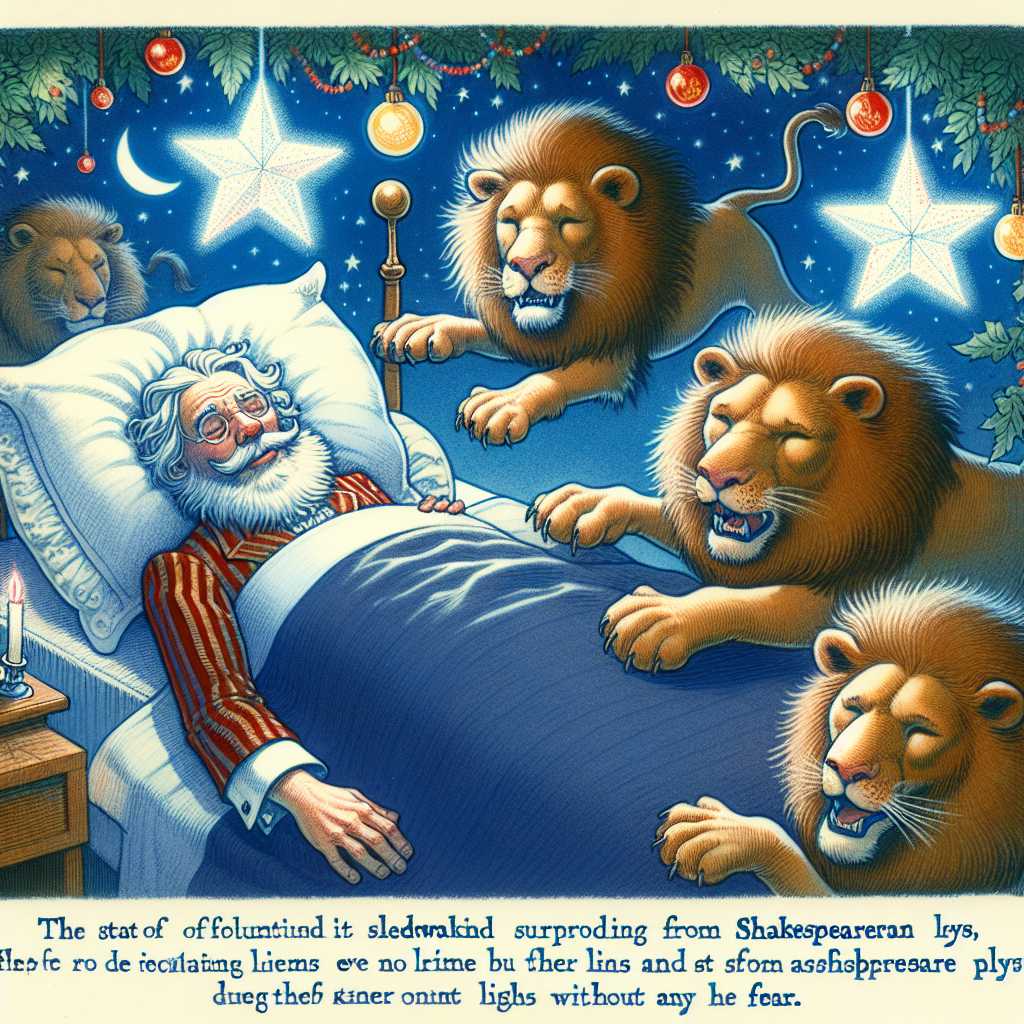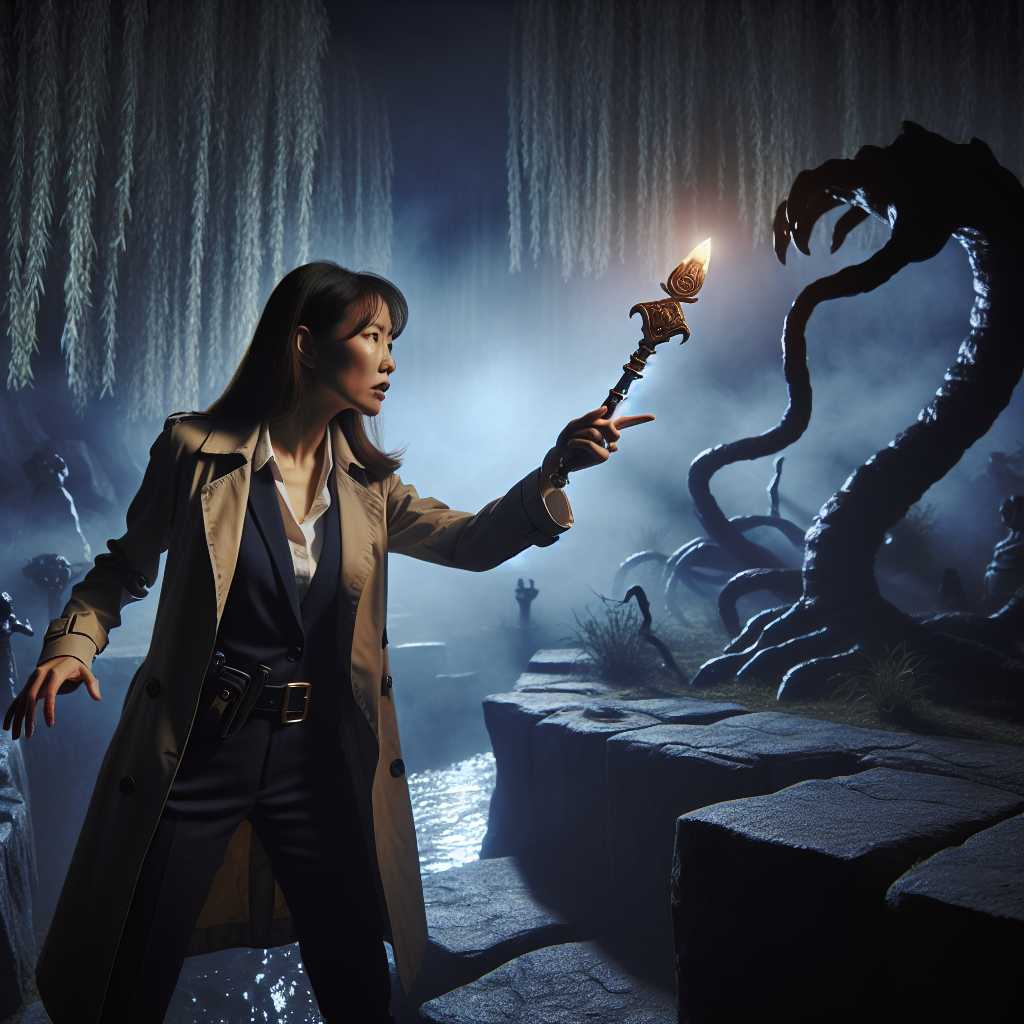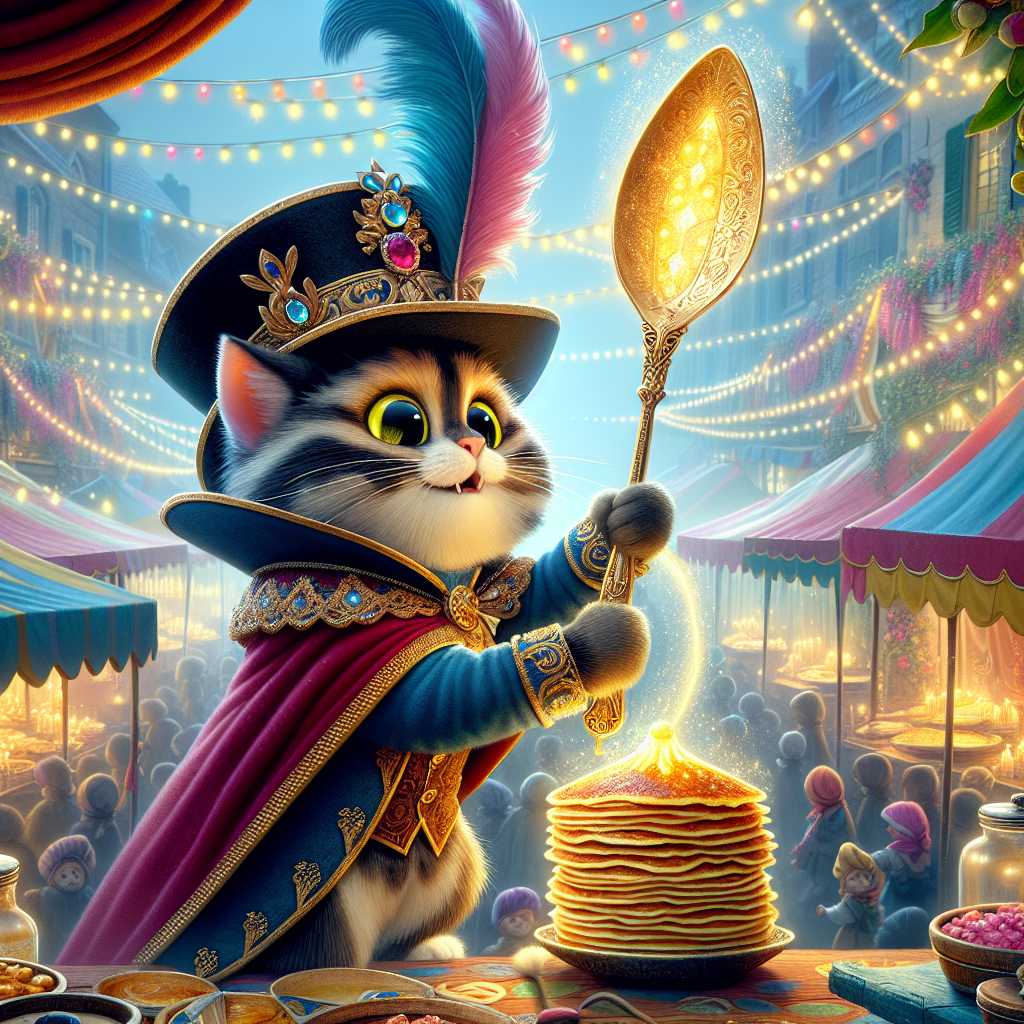
Once upon a time, in a small town that smelled perpetually of freshly baked bread and over-caffeinated cats, there was a man named Frederick Leopold Fitzsimmons—though everyone just called him Fred. Fred was as ordinary as a disposable spoon, except for one extraordinary trait: his uncontrollable habit of sleepwalking...
Now, my dear listeners, when I say "uncontrollable," I don’t mean Fred would occasionally find himself in the kitchen searching for leftover pizza. No, Fred’s sleepwalking was a level of bizarre worthy of a circus sideshow.
One chilly autumn night, under the watchful eye of a full moon that looked like a giant marshmallow, Fred embarked on yet another of his nocturnal escapades. Dressed in his typographically puzzling pajamas ("I’m with stupid" arrow-point irony pointing straight up to his face), Fred wandered out of his house, down Main Street, and right into the town’s park.
The park was home to a picturesque pond where the ducks were never quite sure if they were swimming or existentially pondering their own reflections. Fred, however, had absolutely no business quacking or contemplating. Yet to the surprise of Claude, the most philosophical duck, Fred began reciting Shakespeare’s “To be, or not to be…”. Interestingly, he replaced “be” with “duck” every time. “To duck, or not to duck, that is the question!” Claude found this rather moving and decided to follow Fred to wherever this profound sleepwalking journey would lead them.
And lead them it did—to the town hall, no less. For reasons only a sleep-deprived subconscious could fathom, Fred walked right up to the podium in the middle of the empty council chamber. Unperturbed, he began an impromptu speech about the necessity of roundabout roundabouts, leaving the imaginary audience both baffled and captivated. Claude quacked in agreement from the audience pews, believing he was witnessing some form of surreal avian activism.
Well, wouldn’t you know it, the next morning the mayor went for his regular jog, which was less of a jog and more of a dramatic amble. That’s when he found Fred slumped over the podium. Concerned and confused, the mayor tapped Fred on the shoulder. Fred awoke with a start, looked around, and muttered, “I really ought to lay off the cheese before bed.”
Oblivious to the mayor’s stunned expression, Fred stumbled out of town hall, trying to piece together why he tasted a faint hint of pond algae. That night, as the town buzzed with inexplicable excitement over a rumored duck-rebellion, Fred fell asleep with a sense of uneasy anticipation. But anticipate he did not need; adventure was on the horizon whether he liked it or not.
The very next week, Fred’s sleepwalking took him to the local zoo. The zookeeper, a woman named Gertrude who knitted scarves for penguins in her spare time, was updating her Instagram with selfies of her favorite llama. So, she hardly noticed Fred making his way into the lion’s den. The lions, being somewhat night-owlish and peculiar themselves, decided that Fred was clearly a diplomat from the world of pajamas. They treated him with the utmost respect, guiding him to the comfiest rock they had. Fred, naturally, mistook this for an impromptu camping trip and settled down, hugging a stray lion cub like it was a particularly fluffy pillow.
The following morning, as dew clung to the zoo’s chain-link fences, Gertrude happened upon this peculiar tableau: Fred, nuzzling a lion cub, surrounded by a circle of attentive lions who seemed to be asking for favors involving more steak. She was amazed but decided against putting this on Instagram—it was far too much for even her most loyal followers.
By now, word had spread across the small town. Fred Leopold Fitzsimmons was becoming something of a local legend. The townsfolk wondered: would he sleepwalk into the local bakery next? Perhaps commandeer the post office and stamp every package with a smiley face? Fred himself was completely unaware of his newfound fame, which added an aura of innocent mystique around his nightly jaunts.
As we drift closer to the climax, or anticlimax, of Fred’s tale, we find ourselves on a cold December night. The air was as crisp as a packet of newly opened chips. Under the blanket of stars, Fred wandered into the town square, where the annual Christmas tree sat in all its twinkling glory. With the dexterity of a man who clearly had some hidden talents, Fred climbed the tree and perched himself on the top, substituting for the traditional star. He extended his hands outward, providing a somewhat baffling yet inspiring human ornament.
At dawn, the townsfolk gathered as usual, ready to partake in the festival of lights. Imagine their surprise when they saw Fred, decked with tinsel, blinking sleepily like a human star that had just realized it was out of place. They all burst into laughter, the kind that makes your belly ache and tears stream from your eyes. Fred, now fully awake, surveyed the scene from his lofty position and chuckled.
From that day on, Fred’s sleepwalking adventures became a cherished thread in the rich tapestry of the town’s lore. Whether he was quacking Shakespeare or hugging lion cubs, Fred Leopold Fitzsimmons became the delightful enigma that made life a little less ordinary and a whole lot more humorous.
And thus, dear listeners, the tale of Fred—a man who turned sleepwalking into an art form—reminds us that sometimes, the most bizarre expeditions occur not in the realm of the waking, but in the unpredictable landscapes of our dreams.
The End.










